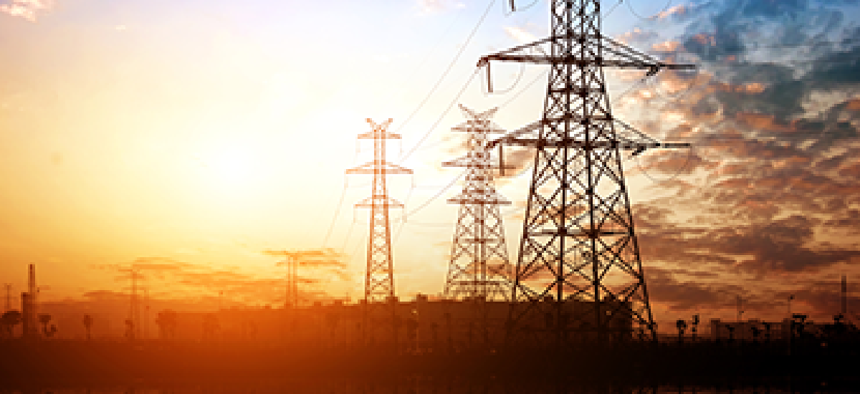Industry to government: We need help with cybersecurity

Infrastructure execs call for more coordination between agencies and private-sector stakeholders.

In boardrooms across the country, utility CEOs increasingly are recognizing the importance of enacting security measures and the need to work with the government to do so. (Stock image)
The role of industry in the security of critical infrastructure remains a key part of the ongoing cybersecurity debate in Washington, and as regulators and agencies prepare to begin implementing measures under President Barack Obama's executive order, companies appear ready to act.
In last year's failed cybersecurity legislation, as well as in the cyber EO, participation of privately owned operators of critical infrastructure – whether mandated, incentivized otherwise nudged forward – has been critical. While much of the conversation has centered on what the government is doing, representatives from the private sector now are talking about what they can bring to the table – and what they need from Washington.
In boardrooms across the country, utility CEOs increasingly are recognizing the importance of enacting security measures and the need to work with the government to do so. Addressing the problem, as well as its nation-wide economic and security repercussions, is in companies' own best interest, according to Scott Aaronson, director of government affairs and the Edison Electric Institute.
"That coordination between industry and government has been increasing exponentially in the last 12 to 18 months, with no end in sight," Aaronson said April 1 at an IBM-sponsored event in Washington. "Secretaries, deputy secretaries, DHS, White House folks...are all talking to each other all the time now."
But that talk needs to be stepped up from the common discussion of standards to real cooperation, Aaronson added.
"Standards are great, but...in of and of themselves inefficient," he said. "Standards are a 90 percent solution – they are the good network hygiene, the basic things you can do to be secure. The other 9.99 percent comes not just with information-sharing...but close coordination. The government has intelligence-gathering capabilities; it has a standing Army; they are responsible for national security. [A utility's] responsibility is pushing the button. We need to coordinate that together."
Miles Keough, director of grants and research for the National Association of Regulatory Utility Commissioners, said that coordination is crucial in order to build on solid tools much of industry already has.
"We get worked up because cybersecurity feels different than some of the other stuff that's out there, but a lot of what we need to manage this – the risk-management tools, the concepts, the prudent investments – we have a very full toolbox to help us," Keough said. "There's not a lot of new invention that needs to happen. A lot of the conversation about coordination is going to be important to using those tools effectively. It’s tempting...to try to find easy answers and to think that we need to invent a lot of new stuff, instead of a few new things that bridge what we already have."
What industry does need, according to Keough as well as other industry insiders who spoke to reporters, are better ways to differentiate between the numerous systems and processes that comprise security in critical infrastructure, and in turn measure their respective effectiveness.
"When we talk about the interconnectedness [of the utility sector] as its strength and weakness, securing those systems doesn't mean securing the same pieces of infrastructure the same way," Keough said. "As long as we operate cybersecurity as if it's one thing that covers the IT structures, the control system structures, the printers in the office and the balancing operations that distribution and transmission systems use...it's very hard to find good solutions toward securing each element of that. It's important to have metrics and definitions that separate those things."
At the same time, as federal leaders determine the way forward in securing critical infrastructure, private operators worry that a slew of new regulations could stymie progress. The debate over new regulations on the private sector ultimately helped sink cybersecurity legislation last year.
"One of the things we find concerning is if you give me 50-plus pieces of legislation to manage cybersecurity to, it's going to be impossible," said Michael Kuberski, chief information security officer at Pepco Holdings, Inc. "At PHI we have four different jurisdictions we operate in. If we have different regulations coming from each state on how to do cyber, it would be ineffective for us."
Kuberski added that he believes federal legislation would be better than if states were to issue their own regulations on owners and operators. Typically, utilities are regulated by state, not federal, entities. In industry, government and academia, the general consensus is that a risk-management approach may prove to be the most effective way to address cybersecurity amid a rapidly developing threat landscape.
"This is about appropriate risk management. This is not a binary, yes-no decision," said David Batz, director of cyber and infrastructure security at the Edison Electric Institute. "It's about recognizing the risk profile and that it's changing. Owners and operators have to be able to be agile to respond quickly to emerging threats, and should be looking for [government] partnership. And that partnership should also be agile and not tied into checkbox compliance – it doesn’t scale. It doesn’t address the threats that can come along next week that we didn't consider 18 months ago."


